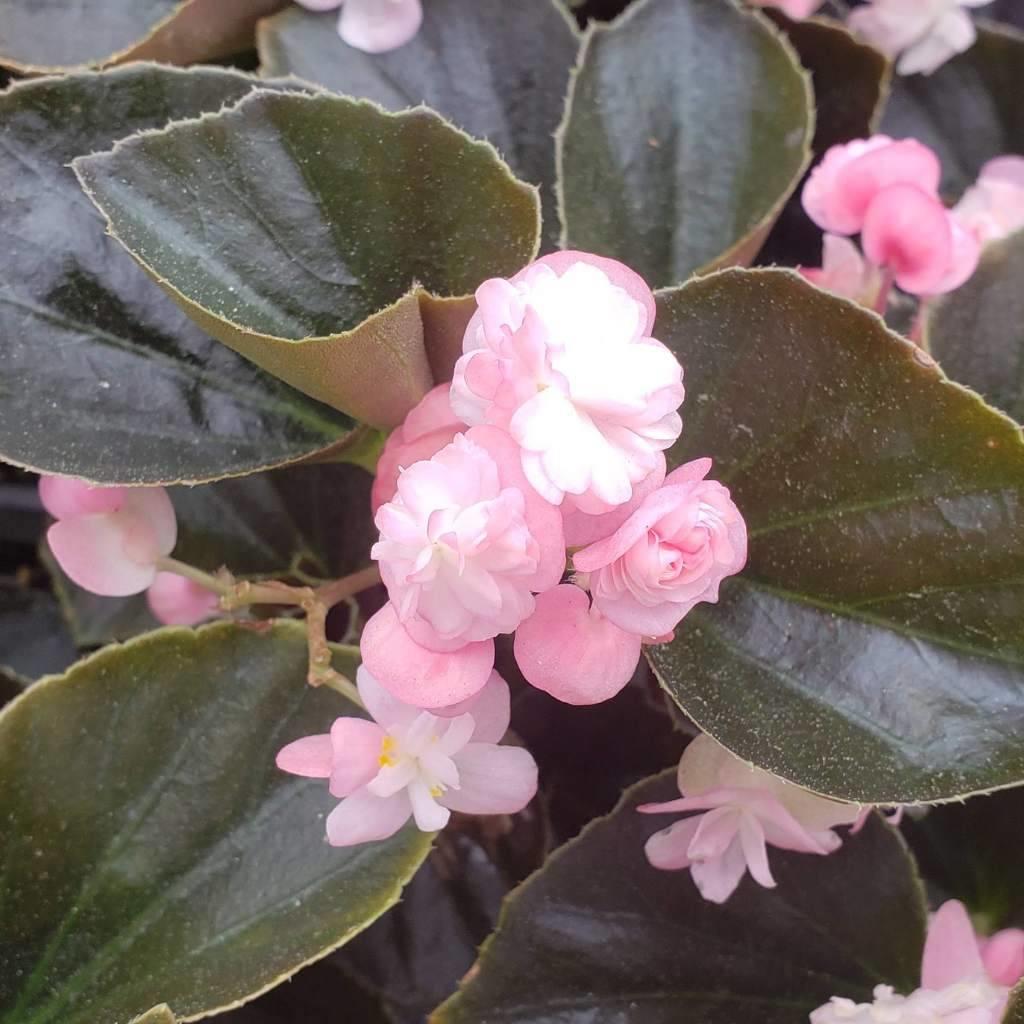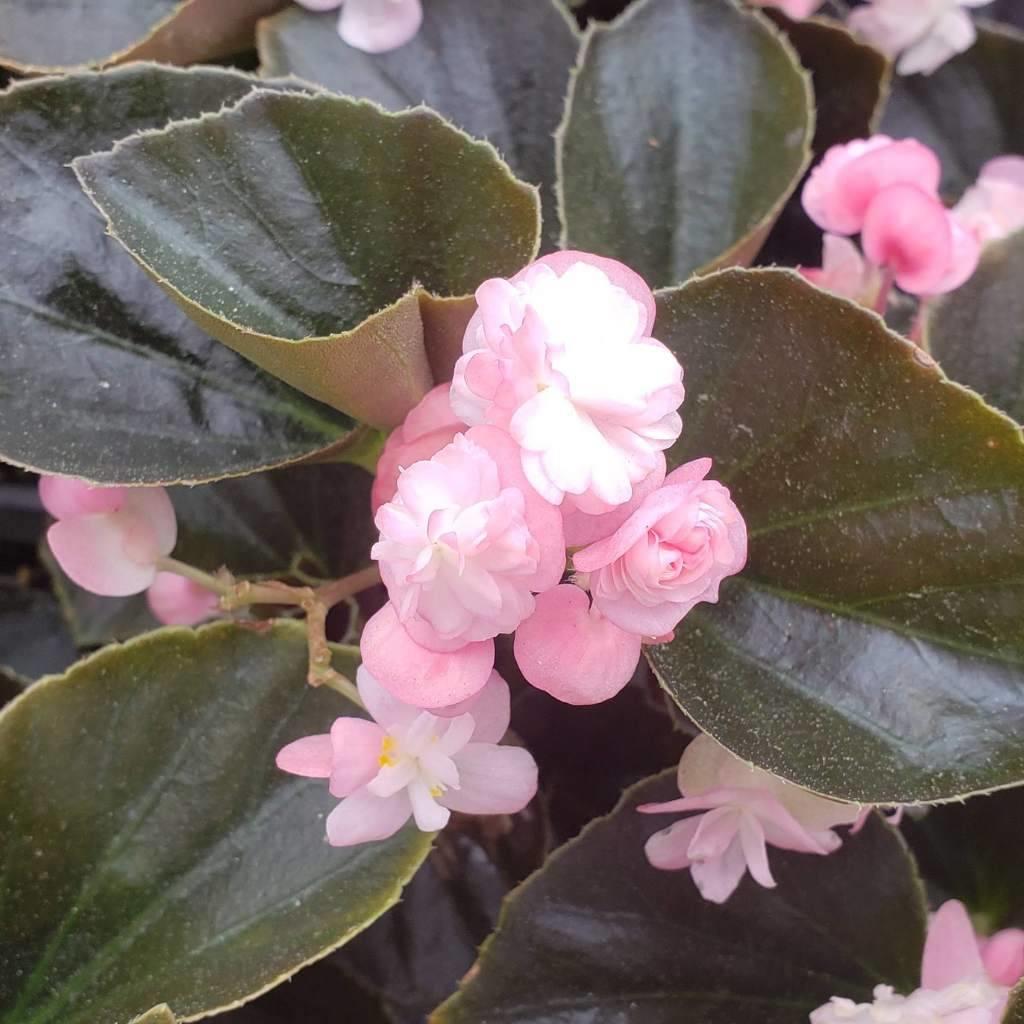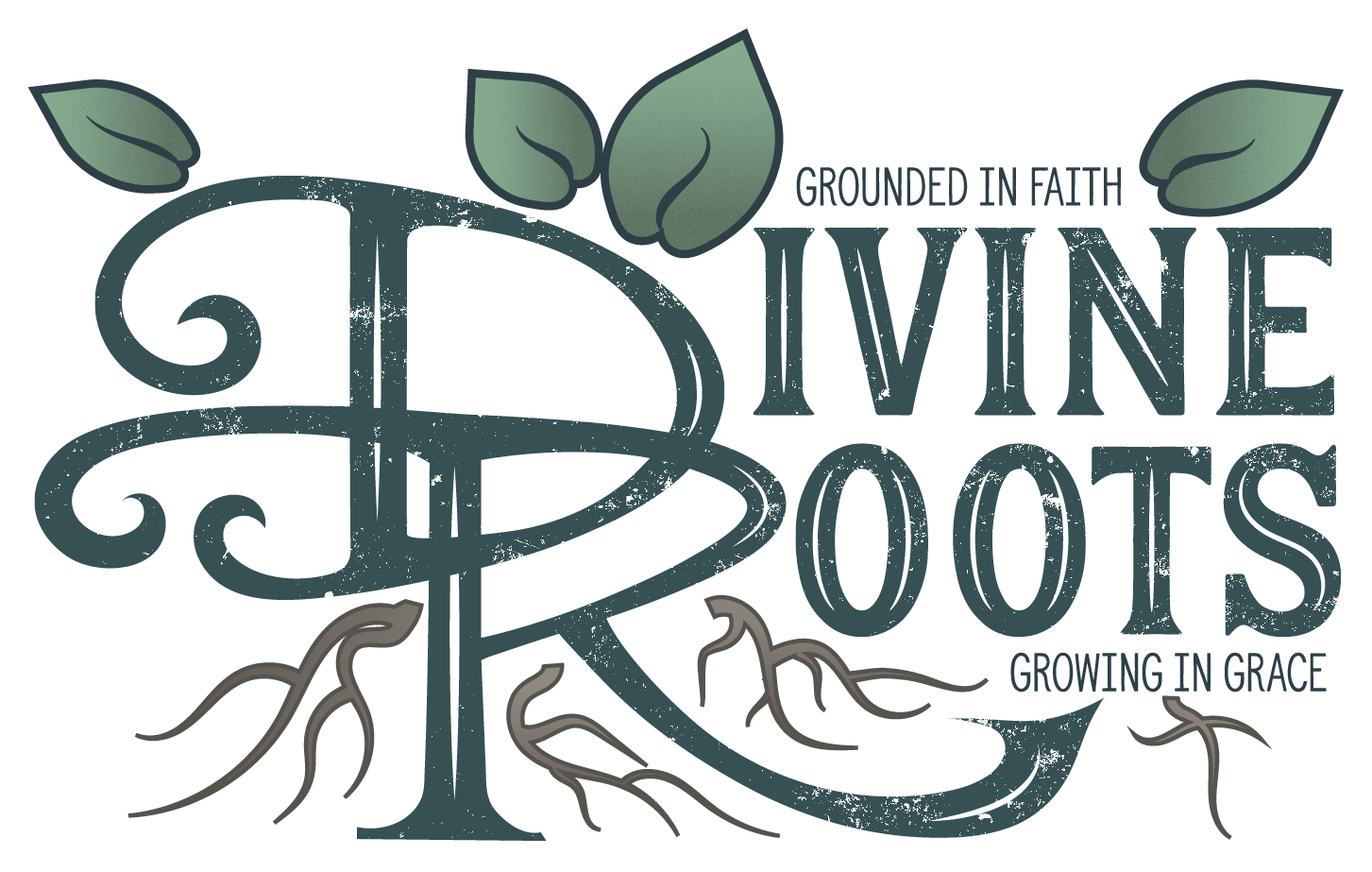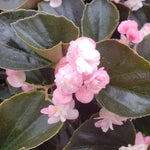
Begonia Double Lady Francis Pink
$12.79
Unit price perEstimated delivery between 31 October and 02 November.
At Divine Root, we are committed to delivering healthy, high-quality indoor plants to our customers. While we do not accept returns due to the perishable nature of live plants, we offer a 30-day plant health guarantee and store credit for qualifying issues. Please read our Refund Policy carefully to understand how we handle concerns regarding plant health, shipping, and order

Begonia Lady Francis Care Guide & Presentation
Pet Safe
No
Water Needs
Medium
Sunlight
Bright
Hardiness Zones
9-11
Temperature
65°F to 75°F
Suitable Space
Bright shelves, windowsills, tabletops
Humidity
High
Plant Class
Flowering
Plant Type
Perennial
Plant Characteristics
Double blooms, lush foliage
Genus
Begonia
Fertilizing
Monthly
Re-potting
Annually
Cleaning
As needed
Propagation
Stem cuttings
Begonia Double Lady Francis Pink: Overview
The Begonia Double Lady Francis Pink is a show-stopping tuberous begonia renowned for its lavish, double-petaled pink blooms and lush foliage. A hybrid cultivar within the Begoniaceae family, this plant boasts rose-like flowers with layers of soft pink petals, creating a romantic, gardenia-like appearance. Native to tropical and subtropical regions, it thrives in shaded outdoor gardens or as a vibrant indoor accent.
This begonia features glossy, deep green leaves with serrated edges, providing a striking contrast to its profuse floral display. Ideal for hanging baskets, containers, or shaded garden beds, it grows 12-18 inches tall and wide, blooming prolifically from late spring to early fall. While moderately demanding, it rewards attentive care with continuous blossoms and lush growth. Compared to other begonias like Angel Wing or Rex varieties, the Double Lady Francis Pink stands out for its double flowers and old-world charm.
Begonia Double Lady Francis Pink: Benefits
- Ornamental brilliance: Double pink blooms add elegance to patios, balconies, or indoor spaces.
- Versatile growth: Suitable for containers, hanging baskets, or shaded garden borders.
- Long blooming period: Flowers persist for months with proper care.
- Mood-enhancing: Vibrant blooms uplift spaces with a touch of vintage romance.
- Compact size: Fits small gardens or urban balconies without overwhelming space.
Begonia Double Lady Francis Pink Care Guide
Light and Water
- Light: Prefers bright, indirect light or dappled shade. Avoid direct sun to prevent leaf scorch.
- Water: Keep soil consistently moist but not waterlogged. Water when the top inch of soil dries; reduce frequency in winter dormancy.
Soil and Fertilizing
- Soil: Use a well-draining, peat-based mix enriched with compost or perlite.
- Fertilizer: Apply a balanced, water-soluble fertilizer (10-10-10) every 2-3 weeks during the growing season.
Temperature and Humidity
- Temperature: Ideal range: 60-75°F (15-24°C). Protect from frost and temperatures below 50°F (10°C).
- Humidity: Thrives in 50-70% humidity. Use a pebble tray outdoors or group plants indoors to boost moisture.
Pruning, Propagating, and Repotting
- Pruning: Deadhead spent blooms to encourage new flowers. Trim leggy stems to maintain shape.
- Propagating: Propagate via stem cuttings or division of tubers in early spring.
- Repotting: Repot tubers annually in spring after dormancy. Choose a container 1-2 inches larger.
Common Problems
- Powdery mildew: Prevent by ensuring good airflow and avoiding overhead watering.
- Root rot: Caused by soggy soil. Improve drainage and reduce watering in cool weather.
- Aphids or spider mites: Treat with insecticidal soap or neem oil.
- Bud drop: Due to sudden temperature changes or underwatering. Maintain consistent care.
Begonia Double Lady Francis Pink: Best Locations & Uses
- Shaded patios: Thrives in hanging baskets or containers under pergolas.
- Indoor windowsills: Brightens north or east-facing windows with indirect light.
- Woodland gardens: Adds color to shaded garden edges or under tree canopies.
- Event decor: Ideal for floral arrangements or wedding centerpieces.
- Pet-free zones: Toxic to cats and dogs if ingested.


